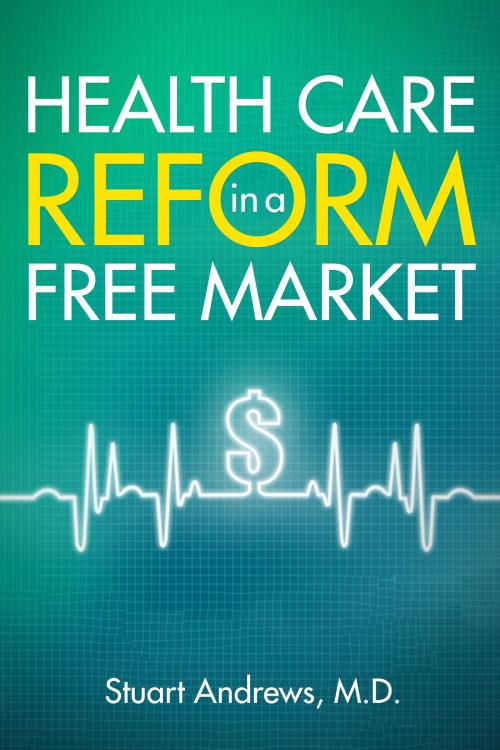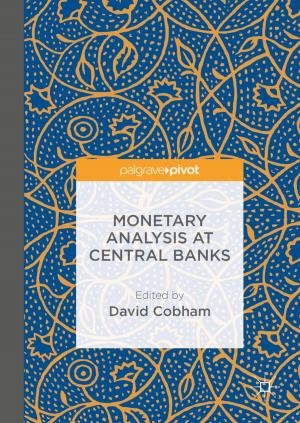Health Care Reform in a Free Market
Nonfiction, Health & Well Being, Health, Health Care Issues, Social & Cultural Studies, Political Science, Politics, Economic Policy| Author: | Stuart Andrews, M.D. | ISBN: | 9781370321940 |
| Publisher: | Stuart Andrews, M.D. | Publication: | February 12, 2018 |
| Imprint: | Smashwords Edition | Language: | English |
| Author: | Stuart Andrews, M.D. |
| ISBN: | 9781370321940 |
| Publisher: | Stuart Andrews, M.D. |
| Publication: | February 12, 2018 |
| Imprint: | Smashwords Edition |
| Language: | English |
Universal Buck-Passing: Socialized medicine never works. It can seem to work for about fifty to seventy years as true costs are hidden and construed as increases in the "cost-of-living" or as nebulous, ill-defined tax increases, rather than increased, dedicated health care costs. The concept of “price at the point of service” is important, since it is easy to assume that it represents the total cost of care. Taxes to fund the system are actually hidden, compelled pre-payments. They allow point of service fees [payments at the time of service] to be discounted or non-existent. This gives one the impression of paying less or paying nothing. This is, in essence, a system of institutional buck-passing that hides, without eliminating, the true cost of care. Eventually these systems self-destruct due to the insatiable demand of a service perceived as free at the point of service; but not before creating severe shortages of the designated service.
We need to uncouple people's health insurance from their employers’ apron strings by establishing equity in the tax code. You should have the same tax break whether you buy your insurance directly or through the boss. In consumer-driven health care individuals would receive the same tax deductions on their personally purchased premiums as those receiving employer-generated insurance.
The Miraculous Cure That Never Was And Never Will Be: Prescription drugs are expensive in part because innovative development costs money. The baseline costs have to be recouped. If development costs are not recovered, or if the finished product - the intellectual property of the pharmaceutical company - is simply confiscated [by government], all innovation will come to a standstill. There will be no new drugs. And no one will miss that miraculous medication that never was and never will be. Nor will any politician be blamed for destroying something that never existed, but might have through research driven by the profit motive. Having said that, there are artificial, nonmarket forces we can eliminate, that further increase the price of new brand name drugs beyond their cost of production.
Insurance: What Is It? Insurance is affordable because many people pay for protection from an unlikely, but catastrophic, risk. For home insurance "unlikely risk" would mean your home burning down, but not your windows getting dirty; for your car: collision damage, but not oil changes. Burnt homes are expensive to fix but unlikely to occur, whereas everyone washes their windows occasionally, and affordably. We try to avoid car collisions, but we all change our car’s engine oil regularly. Therefore, a fire protection [or collision repair] rider would cost a lot less than the price of rebuilding your house [or repairing or replacing your car], since all subscribers would pay a premium, but few would suffer fire [or collision] damage. On the other hand everyone would use the window washing [or oil-changing] benefit, so each individual subscriber’s premium would reflect the true cost of washing each individual subscriber’s windows [or replacing his oil]. To this add the insurer's overhead and profit margin. There would be no savings over just buying the service outside the insurance arena - directly from the service vendor.
[Insurance] Pools can be statistical creations unattached to geography or workplace, if insurers are able to compete among the 50 states. Even if confined to a specific state, multiple large pools can be created independently of any employer.... The issue of "portability" is a moot point when pools - and insurance for that matter - are no longer employer-generated. Changing jobs or moving across the country would no longer be a "health care decision.”
Summary: I list the effective elements in creating an ideal health care system that will be first class, affordable, available, accessible, and noninflationary, while accommodating pre-existing conditions.
Universal Buck-Passing: Socialized medicine never works. It can seem to work for about fifty to seventy years as true costs are hidden and construed as increases in the "cost-of-living" or as nebulous, ill-defined tax increases, rather than increased, dedicated health care costs. The concept of “price at the point of service” is important, since it is easy to assume that it represents the total cost of care. Taxes to fund the system are actually hidden, compelled pre-payments. They allow point of service fees [payments at the time of service] to be discounted or non-existent. This gives one the impression of paying less or paying nothing. This is, in essence, a system of institutional buck-passing that hides, without eliminating, the true cost of care. Eventually these systems self-destruct due to the insatiable demand of a service perceived as free at the point of service; but not before creating severe shortages of the designated service.
We need to uncouple people's health insurance from their employers’ apron strings by establishing equity in the tax code. You should have the same tax break whether you buy your insurance directly or through the boss. In consumer-driven health care individuals would receive the same tax deductions on their personally purchased premiums as those receiving employer-generated insurance.
The Miraculous Cure That Never Was And Never Will Be: Prescription drugs are expensive in part because innovative development costs money. The baseline costs have to be recouped. If development costs are not recovered, or if the finished product - the intellectual property of the pharmaceutical company - is simply confiscated [by government], all innovation will come to a standstill. There will be no new drugs. And no one will miss that miraculous medication that never was and never will be. Nor will any politician be blamed for destroying something that never existed, but might have through research driven by the profit motive. Having said that, there are artificial, nonmarket forces we can eliminate, that further increase the price of new brand name drugs beyond their cost of production.
Insurance: What Is It? Insurance is affordable because many people pay for protection from an unlikely, but catastrophic, risk. For home insurance "unlikely risk" would mean your home burning down, but not your windows getting dirty; for your car: collision damage, but not oil changes. Burnt homes are expensive to fix but unlikely to occur, whereas everyone washes their windows occasionally, and affordably. We try to avoid car collisions, but we all change our car’s engine oil regularly. Therefore, a fire protection [or collision repair] rider would cost a lot less than the price of rebuilding your house [or repairing or replacing your car], since all subscribers would pay a premium, but few would suffer fire [or collision] damage. On the other hand everyone would use the window washing [or oil-changing] benefit, so each individual subscriber’s premium would reflect the true cost of washing each individual subscriber’s windows [or replacing his oil]. To this add the insurer's overhead and profit margin. There would be no savings over just buying the service outside the insurance arena - directly from the service vendor.
[Insurance] Pools can be statistical creations unattached to geography or workplace, if insurers are able to compete among the 50 states. Even if confined to a specific state, multiple large pools can be created independently of any employer.... The issue of "portability" is a moot point when pools - and insurance for that matter - are no longer employer-generated. Changing jobs or moving across the country would no longer be a "health care decision.”
Summary: I list the effective elements in creating an ideal health care system that will be first class, affordable, available, accessible, and noninflationary, while accommodating pre-existing conditions.















